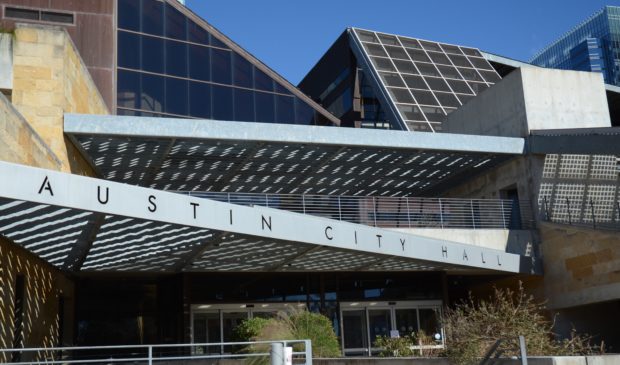About the Author
Chad Swiatecki is a 20-year journalist who relocated to Austin from his home state of Michigan in 2008. He most enjoys covering the intersection of arts, business and local/state politics. He has written for Rolling Stone, Spin, New York Daily News, Texas Monthly, Austin American-Statesman and many other regional and national outlets.
Newsletter Signup
The Austin Monitor thanks its sponsors. Become one.
Most Popular Stories
- Austin-Bergstrom International Airport announces new flight service while anticipating capacity cuts
- Austin Resource Recovery to formally amend cart collection rules
- Austin ISD gets $41 million from the Education Department. What happens if the agency closes?
- Austin requires all homes to have working air conditioning
- Council OKs next steps in planning improvements to Sixth Street district
-
Discover News By District

Political accelerator ready for next class of future Council hopefuls
Wednesday, January 9, 2019 by Chad Swiatecki
Having been an active presence in Dallas-area Democratic and political organizations prior to relocating to Austin four years ago, Zenette Dorsey noticed some unique traits about local political discourse around big issues.
“Austin is going through an identity crisis with the conflict between old Austin and people who are used to what the city has been, and new Austin,” said Dorsey, who works as a strategic product consultant at ProCore Technologies. “The majority of struggles around major topics like mobility and housing affordability and anything involving race is between those who say ‘We are who we are’ versus who we actually are as a city.”
As a graduate of the Center for Austin’s Future’s first ATXelerator class, Dorsey is one of 25 potential future elected officials or activists the group is cultivating with training and big thinking on the basics of governmental operations and the major issues facing the city. The class, which features a series of lectures, a political pitch competition and proposals for possible city ordinances, produced recent District 9 City Council candidate Danielle Skidmore, with many others in the early stages of pursuing public office in the coming years.
The group will convene its second ATXelerator class this weekend with a new group of 26 members.
The nonprofit and nonpartisan Center for Austin’s Future was formed by a group of business and political leaders concerned over a lack of meaningful progress from City Council on mobility and affordability and a general inability to embrace the opportunities Austin offers as one of the most prosperous cities in the U.S.
“It was apparent to me and others that there was no entity growing a bench of leaders equipped to run for City Council,” said Ward Tisdale, executive director of Center for Austin’s Future and former president of the Real Estate Council of Austin. “We want people to be thinking, because Austin is no longer the sleepy college town that some people like to think it still is. It comes down to a question of if you’re planning for the future or are you trying to stop change and re-create the past.”
Tisdale said the group has raised about $460,000 from a dozen donors and has plans to grow into a think tank and political action committee in the near future.
Dorsey said she’s made inquiries into serving on various city boards and commissions and hopes to run for office after she’s spent time building a network in District 5, where she lives, and beyond.
“The learning curve is high as a first-time Council person and even after the accelerator, if I had gotten elected it would have been overwhelming, and you can’t really effect change that way,” she said. “You learn how procedural things are, how you have to understand the rule of law and that there are so many stakeholders around all sides of every single issue here.”
Jose Beceiro, board president of Center for Austin’s Future, said the accelerator was created in anticipation of Austin’s future challenges as a growing city instead of a rebuke of current Council members.
“The current leadership has been fantastic, but this city is seeing so many changes and the issues we’re going to see are evolving at an ever-faster rate,” he said. “We have to prepare people to be able to handle the big issues that growing cities face.”
Beceiro pointed to Skidmore’s high vote totals as a first-time candidate as a positive for the accelerator, with the hope of creating more than 100 potential candidates for all 10 City Council districts and other local offices in the coming years.
“We’re glad to be building that pipeline,” he said. “We’re clear that we want enthusiastic people interested in seeing Austin become an even greater city, and show them the fundamentals, including how hard it is to raise money, building community support and facing tough criticism.”
Photo by John Flynn.
The Austin Monitor’s work is made possible by donations from the community. Though our reporting covers donors from time to time, we are careful to keep business and editorial efforts separate while maintaining transparency. A complete list of donors is available here, and our code of ethics is explained here.
You're a community leader
And we’re honored you look to us for serious, in-depth news. You know a strong community needs local and dedicated watchdog reporting. We’re here for you and that won’t change. Now will you take the powerful next step and support our nonprofit news organization?

